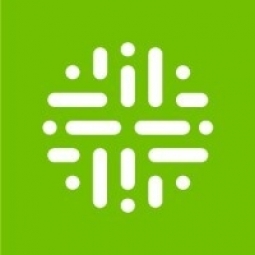Technology Category
- Cybersecurity & Privacy - Identity & Authentication Management
- Platform as a Service (PaaS) - Application Development Platforms
Applicable Industries
- Education
- Equipment & Machinery
Applicable Functions
- Procurement
Services
- Cloud Planning, Design & Implementation Services
- Training
About The Customer
Sub-Zero is a family-owned private company with about 2,600 employees. It started as a refrigeration company in the 1940s. In 2000, they added the Wolf Range Company which manufactures domestic cooking appliances and they expanded again in 2018, by adding the Cove brand of dishwashing equipment. The company is a leading American-based manufacturer of premium kitchen equipment. The company was looking to transform into a more data-driven organization and needed a new, enterprise-encompassing data environment that had comprehensive data governance and could incorporate powerful new data technologies.
The Challenge
Sub-Zero, a leading American-based manufacturer of premium kitchen equipment, was facing challenges in transforming into a more data-driven organization. The company, which started as a refrigeration company in the 1940s and expanded into cooking appliances and dishwashing equipment, needed a new, enterprise-encompassing data environment. This environment needed to have comprehensive data governance and incorporate powerful new data technologies, such as Microsoft’s Power BI and Snowflake on the Azure Cloud. The challenge was to win over business users, find enthusiastic data owners and stewards, enable them with requests, ideas and workshops, and bring data governance to the data governance group itself.
The Solution
Justin Swenson, the company’s Data Governance Lead, outlined specific “lessons learned” during the transformation process. Firstly, he emphasized the importance of telling relatable and applicable stories to win over business users, showing them the value of data governance. Secondly, he highlighted the need to identify enthusiastic data owners and stewards who could drive the program forward. Thirdly, he suggested enabling data owners and stewards by requesting things from them, giving them ideas and running workshops. Fourthly, he stressed the need for data governance within the data governance group itself. Fifthly, he recommended treating data governance like a product and adopting the newest and latest data governance methodologies. Lastly, he advised a gradual approach to the transformation process, starting slow and picking up speed over time. Additionally, he recommended investing in a dedicated, well-trained technical staff for the data information platform.
Operational Impact

Case Study missing?
Start adding your own!
Register with your work email and create a new case study profile for your business.
Related Case Studies.

Case Study
Smart Water Filtration Systems
Before working with Ayla Networks, Ozner was already using cloud connectivity to identify and solve water-filtration system malfunctions as well as to monitor filter cartridges for replacements.But, in June 2015, Ozner executives talked with Ayla about how the company might further improve its water systems with IoT technology. They liked what they heard from Ayla, but the executives needed to be sure that Ayla’s Agile IoT Platform provided the security and reliability Ozner required.

Case Study
IoT enabled Fleet Management with MindSphere
In view of growing competition, Gämmerler had a strong need to remain competitive via process optimization, reliability and gentle handling of printed products, even at highest press speeds. In addition, a digitalization initiative also included developing a key differentiation via data-driven services offers.

Case Study
Predictive Maintenance for Industrial Chillers
For global leaders in the industrial chiller manufacturing, reliability of the entire production process is of the utmost importance. Chillers are refrigeration systems that produce ice water to provide cooling for a process or industrial application. One of those leaders sought a way to respond to asset performance issues, even before they occur. The intelligence to guarantee maximum reliability of cooling devices is embedded (pre-alarming). A pre-alarming phase means that the cooling device still works, but symptoms may appear, telling manufacturers that a failure is likely to occur in the near future. Chillers who are not internet connected at that moment, provide little insight in this pre-alarming phase.

Case Study
Premium Appliance Producer Innovates with Internet of Everything
Sub-Zero faced the largest product launch in the company’s history:It wanted to launch 60 new products as scheduled while simultaneously opening a new “greenfield” production facility, yet still adhering to stringent quality requirements and manage issues from new supply-chain partners. A the same time, it wanted to increase staff productivity time and collaboration while reducing travel and costs.

Case Study
Integration of PLC with IoT for Bosch Rexroth
The application arises from the need to monitor and anticipate the problems of one or more machines managed by a PLC. These problems, often resulting from the accumulation over time of small discrepancies, require, when they occur, ex post technical operations maintenance.

Case Study
Data Gathering Solution for Joy Global
Joy Global's existing business processes required customers to work through an unstable legacy system to collect mass volumes of data. With inadequate processes and tools, field level analytics were not sufficient to properly inform business decisions.







